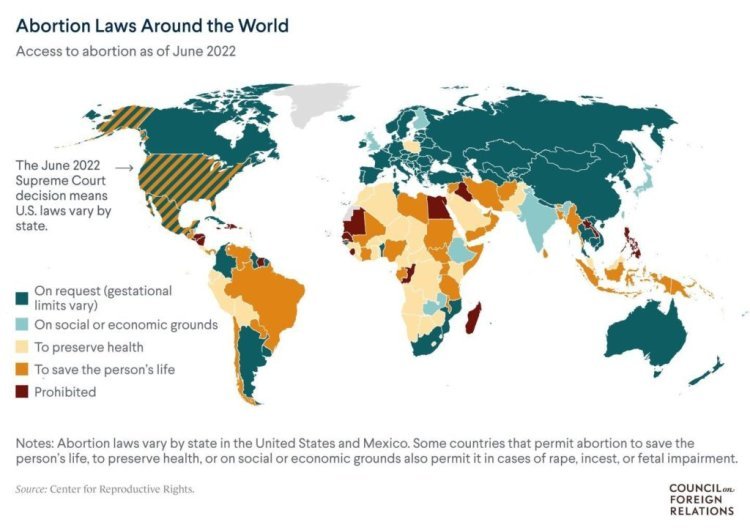State VS. Federal: The Tug-Of-War Over Abortion Laws In A Post-Roe America
State vs. Federal: The battle over abortion laws post-Roe impacts access, rights, and women's reproductive health.

The U.S. legal landscape surrounding abortion has undergone significant changes following the Supreme Court’s decision to overturn Roe v. Wade. This shift transferred the power to regulate abortion from federal oversight to state governments, creating a patchwork of laws across the country. As a result, the rights and access to reproductive healthcare, including the ability to buy abortion pills online, vary dramatically depending on the state in which one resides. This tug-of-war between state and federal authorities has not only intensified political debates but also created substantial challenges for women seeking abortions, especially in restrictive states.
State Power and the New Legal Landscape
In the wake of Roe being overturned, many states have swiftly moved to enforce pre-existing abortion bans or introduce new restrictions. Some, like Texas and Alabama, have enacted near-total bans, making it illegal to obtain an abortion in almost all cases. Meanwhile, states such as California and New York have taken a more liberal approach, codifying abortion rights into state law. This vast disparity creates a confusing legal environment for women, where their access to abortion services, including the ability to ordering Abortion Pills online, can change dramatically if they cross state lines.
For those living in states with restrictive laws, access to safe abortions becomes limited, pushing women to seek alternatives, including traveling to states where abortion remains legal or turning to self-managed abortions using abortion pills. However, even this solution is fraught with legal and logistical hurdles, as many states attempt to regulate the purchase and use of abortion medication within their borders.
Federal Efforts to Maintain Access
While states have gained more authority, federal agencies are also making efforts to ensure access to abortion services. The Biden administration has taken steps to safeguard access to abortion pills through telemedicine, allowing women to purchase abortion pills online in states where this is permitted. The Food and Drug Administration (FDA) has also relaxed some restrictions, enabling women to access medication abortions more easily by mail. This is a significant shift, particularly for women in rural or underserved areas who might not have access to a physical abortion clinic.
However, even with federal support, state laws remain a critical barrier. States with anti-abortion legislation have sought to challenge federal regulations, particularly regarding abortion pills. Some states have attempted to block mail-order abortion pills and impose criminal penalties on those aiding in self-managed abortions. This creates a legal grey area, where federal law and state law are at odds, leaving women uncertain about their rights and legal protections.
The Impact on Reproductive Health
The ongoing tug-of-war between state and federal authorities has profound implications for women’s reproductive health. In states with strict abortion bans, women are increasingly forced into dangerous situations—either traveling long distances for care or attempting to manage their abortions at home without proper medical supervision. Access to safe and legal options, like being able to online buy abortion pills, becomes a lifeline for many women, but only if they are aware of their rights and can navigate the complex legal landscape.
Additionally, the mental health impacts of this legal uncertainty cannot be ignored. The fear of prosecution, combined with limited access to healthcare, creates significant stress for women making reproductive decisions. In contrast, women in states with more liberal abortion laws face fewer hurdles, illustrating the stark divide in reproductive rights across the country.
Looking Forward: What’s Next?
As the legal battles over abortion continue, the future of reproductive rights in America remains uncertain. Some states may seek to further restrict abortion access, while others may become safe havens for women seeking care. At the same time, federal efforts to protect access to abortion medication will likely face challenges from states with restrictive laws. Ultimately, the push-and-pull between state and federal authorities will shape the future of abortion rights in the U.S., impacting women’s health and autonomy for years to come.
In this post-Roe world, women must remain informed about their rights and options. Knowing whether they can legally order abortion pills online in their state, or if they need to seek out other avenues for care, could be crucial in making informed decisions about their reproductive health.
What's Your Reaction?
















